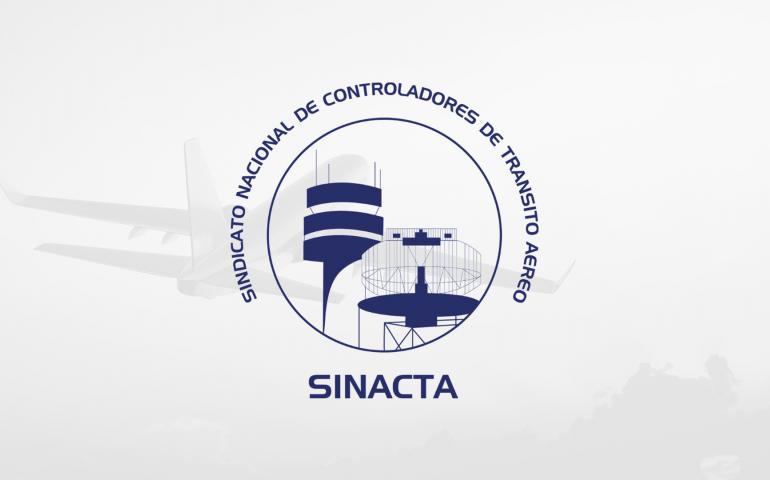
Aviation worldwide is responsible for 2.4% of anthropogenic CO2 emissions, and it is extremely important to reduce these levels, since, according to experts in the field, air transport is expected to grow at a rate of approximately 4.3% per year. Currently the covid-19 pandemic has forced to stop flights, however, its demand will eventually return, and with it, the emission of pollutants.
Rob Walker is the Principal of Aviation at ICF Aviation*. He is an economic forecasting specialist with experience in mature and emerging markets as well as an experienced strategic planner to support airlines and airports. He has worked for British Airways and Virgin Atlantic, where he has worked closely on government, legal, and economic and financial evaluation matters.
In this exclusive interview with A21, Rob talks about the challenges and opportunities of sustainable operations in global air transport and CO2 emissions. The enemy should not be aviation, but carbon.
- What is the current outlook of sustainable operations in the world?
2020 has been a disaster for everyone. In March the world changed for airlines around the world. The coronavirus has hit everyone hard and different markets have started to show different recovery profiles.
It has been a fundamental change in terms of the traffic segments that are currently flying. Mexico has been one of the markets where aviation has continued, but with significantly lower levels compared to 2019.
International markets are between 60 and 70% below 2019 levels, and this figure is higher when it comes to passengers boarding flights, and some market flows, such as long-haul travel, are restricted carbureted for the moment due to quarantines, border restrictions, etc.
We are in the middle of the second wave. During the summer there were signs of hope, but towards the end of the summer when the demand will drop, the second wave came and the demand was just as bad as in May and June, and even the end of the year is not looking very positive so far in terms of volume.
Now that aviation had low levels of activity due to the effects of the covid-19 pandemic, there has been a lot of interest in restarting activities from the angle of sustainability, either due to issues of CO2 emissions or noise from aircraft.
Right now aviation is in the spotlight in the sense that it must prepare to face the challenges in relation to decarbonisation. As an industry, we start to see airlines responding to this, they have cut capacity, which causes lower carbon emissions, in addition to retiring some aircraft in the fleets, prioritizing the use of new generation aircraft that are more efficient, which is good news. The fleets emerging from the pandemic will be greener compared to 2019, and the noise footprint for communities will be a major issue.
- What other challenges do airlines have for sustainable operations?
Historically, global demand has grown by around 145% in the last decade, while aviation efficiency, in terms of carbon footprint, has increased by around 50%. The challenge is for the industry to return to a growth path with more efficient aircraft and for technologies and fuels to contribute to achieving reductions in pollutants.
Aviation is not the enemy, CO2 is the enemy. That is what the industry needs to address through the use of new technologies and the optimization of its operations. In the long term, things like the use of Sustainable Aviation Fuels (SAF), but in the short term you can follow the Carbon Reduction and Elimination Scheme of International Aviation (CORSIA) and in Europe we have the Trading System of Emissions (EU ETS) as a mechanism for offsetting emissions.
- Global emissions from aviation are very low compared to other industries. Do you think movements like the "flight shame" are a witch hunt against aviation?
Yes. The industry is making a change by recognizing that it accounts for 2% of emissions. There has been a significant change in recent years and we have to put this in order, in part because aviation is a big industry in which a growth of between 3% and 4% will be analyzed, in terms of demand, and we will occupy a part largest of global carbon emissions, so we need to set a cap on the growth of pollutants.
Definitely the “Flight Shame” movement has an impact in some markets, like in Scandinavia and its domestic market. The involvement of people in these movements makes them more aware of the environmental situation, however, the industry must communicate that the enemy is carbon and not flights. It shouldn't be the shame of flying, but the shame of producing carbon.
It is certainly a problem, but the industry needs to get ahead and mature, determine plans, identify ways in which they can keep flying, offset emissions, or invest more to pursue SAF use. There are many ways to make your flight greener.
- CORSIA is very important, but it is very technical, it is not something that all people understand. What do you think of the program? Will it work?
I think one of the main challenges for CORSIA is that 2020 should be the baseline that everyone was going to use for the carbon emissions issue, but now it is said that the 2019 levels could be used, or that they will have to recalculate the 2020 levels. The first phase has to do with the will and treaties in terms of the countries that have signed the treaty, while the second phase, which will take place between 2026 and 2027, will be more mandatory. Add to this that China has yet to sign and get involved. I think right now it is in a political stage and there has been a lot of progress, but it depends on the baseline and the countries that sign it.
In Europe we have the EU ETS, but will it be replaced by CORSIA? Will it work in parallel? it will be interesting to see how it unfolds.
- What are the main challenges for the adoption of biofuels?
There are many challenges at the moment, since we are in the absolute infancy of the SAF. Sure, we have seen some headlines that assure that these fuels are being used globally in 220 thousand flights in the world, but this has been achieved over a long period of time. The importance of SAFs is clearly that they are sustainable fuels. At the moment there are several ways by which they can be produced, but of which none has established itself as the market leader, more than anything they have been developed in test stages and some have begun to be scaled to increase their production, but in the short term, we are talking about having to cover certain requirements before fossil fuels are replaced by SAF. It's something the industry needs to focus on right now.
Another important challenge is the cost for the consumer, since it is considerably more expensive than traditional fuel, around two and four times more expensive.
When we talk about airports and airlines, one of the key challenges they mention is the lack of government and regulatory support. One of the things that can help the adoption of SAFs is the launching of tax incentives to try to level the cost of biofuels with jet fuel. There is a lot of work to do, governments in some parts of the world are looking for 2% of aviation fuels to be SAF, and that is putting the situation in the right place to increase the percentage over time.
It's a fascinating moment, this has been developing for the last ten years and I think we are about to see a strong increase in the development of SAFs. There are many plans for the production of these fuels on a large scale, however it will only represent a small fraction of the market. Widespread use of SAFs is a long-term goal.
- What opportunities are there for innovation in the industry?
We are seeing a change in fleets and investments are being made in technology, and in terms of operation, during the pandemic with empty skies, airlines can operate more efficiently, both at airports and in flight, with more direct routes, for example. There is an operational benefit. Some airlines would like to stay with this operational efficiency because the efficiency is good: there is less CO2 emission, less fuel consumed, lower expenses for the airlines. Airlines are already highly motivated to do this.
I think the question is whether the industry will come out of the covid crisis with more debt on it. As an airline, you've just sold everything you have just to survive, so your ability to invest may have decreased from what you had before the pandemic, even though you may be more motivated to do so.
- Should governments do something?
Incentives and stop taxes are needed to give investors and industry confidence to innovate, because billions of pounds of private investment are needed and they see what we are going to get in return. They need a guaranteed source of income so that there is a cushion to invest.
- How long will it take to see hydrogen-powered aircraft?
In terms of the development of this technology, we have seen that historically whenever a new aircraft comes in there is an environmental improvement. For example, the B737 MAX, the Neo, the 787 all are more ecologically friendly, reducing fuel consumption by 15 or 20%. Electric airplanes are already entering the smaller markets, in airlines that serve regional markets and have a capacity of between 9 and 12 seats. Electric airplanes are not far from entering commercial markets. There is an airline in Boston that is already entering this market. In electric planes, there are plans to make them larger so that they can have a capacity of between 50 and 100 seats and this may be seen by the end of the 2030s and 2040s. Anything bigger than a short-range jet and regional flights is still a lot for electric aircraft, in terms of battery technology so they can fly for up to 13 hours. There is hope for the entry of electric aircraft but also for the combustion of hydrogen and the development of SAFs. In the long run, this is what is expected.
Electric planes will serve regional markets, and possibly hydrogen cells will also be used, but that will come much later in terms of technology.
- What will the industry be like in 2050?
We know what the industry will be like in 10 or 15 years, what planes we will see in these 15 years. Beyond that, you have to dream about how it will evolve. There will be pressure on aircraft and engine builders to decarbonize. Hopefully the next generation of aircraft is not just another path, but also has a more radical change in efficiency, fuel consumption and adoption of new technologies. By 2050 there will be a combination of adoption of operational procedures, minimizing fuel consumption, air routes, and an improvement in technology that will deliver more efficiency than the 1 or 2% we have had every year. It will be a more decarbonized industry and hopefully SAF is already available so that there can be a total distribution of up to 50 or 60% and not just 30% as is currently forecast, to support the reduction of CO2 emissions.





Facebook comments